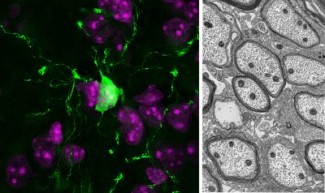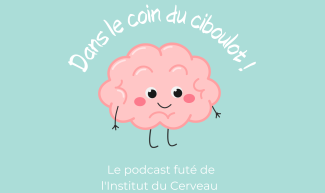Fanny Mochel responds to 8-year-old Noah
The Role of Nutrients in Brain Functioning
The brain is constantly active, whether it is thinking, moving, learning at school or even seeing, hearing and feeling. To do all these things, he needs fuel, just as a car needs fuel to run. This fuel comes from the nutrients we find in our diet. Nutrients are essential elements that give us the energy to make our bodies work. They are found mainly in the foods we eat every day, such as fruits, vegetables, cereals, meat, fish and dairy products.
The two main types of nutrients the brain needs to function are sugars and fats. These nutrients are used by the brain in a specific way, depending on the amount of energy available in the body.
Sugars: the brain’s primary source of energy
When we eat, our bodies begin to convert food into nutrients, including sugars. Sugars, or carbohydrates, are found in many foods: fruits, honey, but also in products such as bread, pasta, rice and potatoes. These sugars are essential to provide the brain with an immediate source of energy. After a meal, when energy is still available in the blood in the form of glucose, the brain uses this energy mainly to function.
But what happens when sugar supplies run out? This is where fat comes in, another source of fuel for the brain.
Fat and ketones: a source of energy for the brain
The brain, although requiring a continuous supply of nutrients, has no energy reserves per se, unlike other organs such as the liver or muscles. These peripheral organs store energy in the form of fats and sugars for redistribution to the brain when necessary.
When sugar reserves are consumed, the brain turns to fat for energy. Fats are first converted to ketones by the liver. Although these keto bodies have a characteristic odour, they are very effective in feeding the brain. In fact, some studies even suggest that the brain functions better when it is fed by ketones rather than sugars. This explains why researchers recommend limiting the consumption of sugars, including candies, cakes and sodas.
Hunger as a Signal of Available Energy for the Brain
The brain plays a central role in managing the body’s energy, including sending signals when energy begins to run out. When the body's energy reserves, such as those of the liver or muscles, are low, the brain triggers a feeling of hunger to encourage food consumption. This process of energy regulation involves complex communication between the brain and other organs via hormones. These hormones, such as leptin and ghrelin, signal to the brain that it is time to eat to restore energy levels.
The Consequences of Poor Nutrition on the Brain
It is clear that diet plays a crucial role in brain health. If the brain is not given enough food, especially during prolonged fasting, it can function for some time using its energy reserves. However, this situation cannot continue indefinitely. The body's energy reserves, like those of the muscles, will eventually deplete and this will eventually affect brain function.
This is particularly important for children, whose brain energy needs are very high. Inadequate nutrition, especially during periods of starvation or malnutrition, can lead to problems with growth, learning and brain development. It is therefore essential to ensure that children receive sufficient nutrients to support their cognitive development.
The Impact of Overweight and Obesity on the Brain
But too much food can also have negative effects on the brain. When we eat more than our body needs, the excess is stored as fat. This can lead to overweight and, in more severe cases, obesity. Although the brain itself does not store fat, excess fat can affect the overall health of the body, which can indirectly affect brain function.
One of the most worrying risks is the excessive consumption of sugars. Too much sugar in the diet can have toxic effects on the brain, causing brain cells to age prematurely and their function to be impaired. This is linked to chronic inflammation and insulin resistance, both of which can disrupt brain function.
How to eat a balanced brain diet
Feeding our brains the right nutrients is essential. An adequate intake of natural sugars, healthy fats, and protein is essential to maintain good brain health. For children, this means providing a varied and balanced diet with nutrient-rich foods such as fruits, vegetables, whole grains, nuts and fatty fish. It is also important to limit refined sugars and promote healthy eating habits from an early age.
In short, the brain needs nutrients to function optimally, and nutrition plays a key role in this dynamic. Good management of nutrient intakes can improve not only physical health, but also cognitive performance and mental development.

The team aims to elucidate the role of innate and adaptive immune cells in myelin destruction and repair in multiple sclerosis, target innate immunity as therapeutic mediators in neurometabolic diseases, and decipher the code to control macrophage...
Read more
